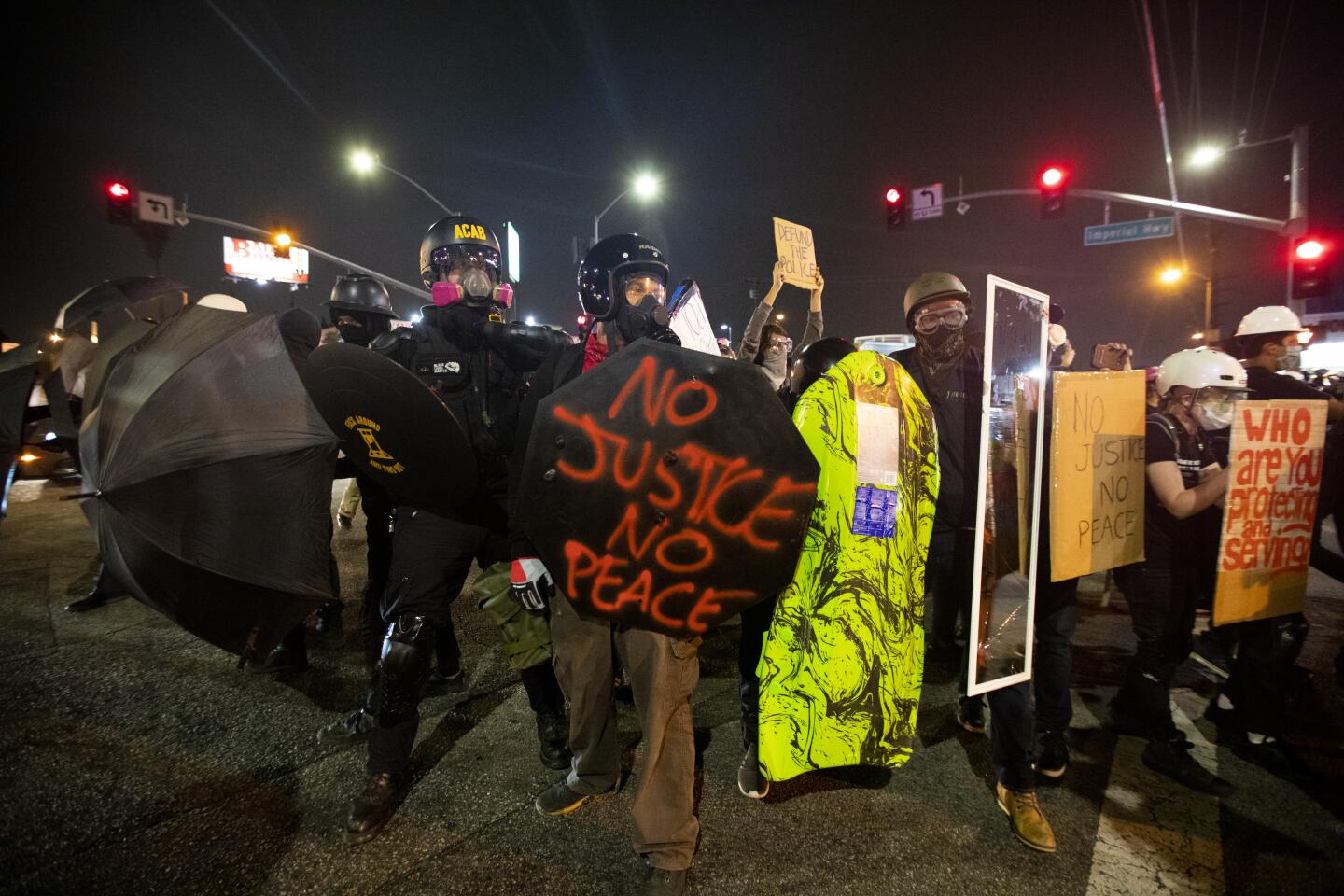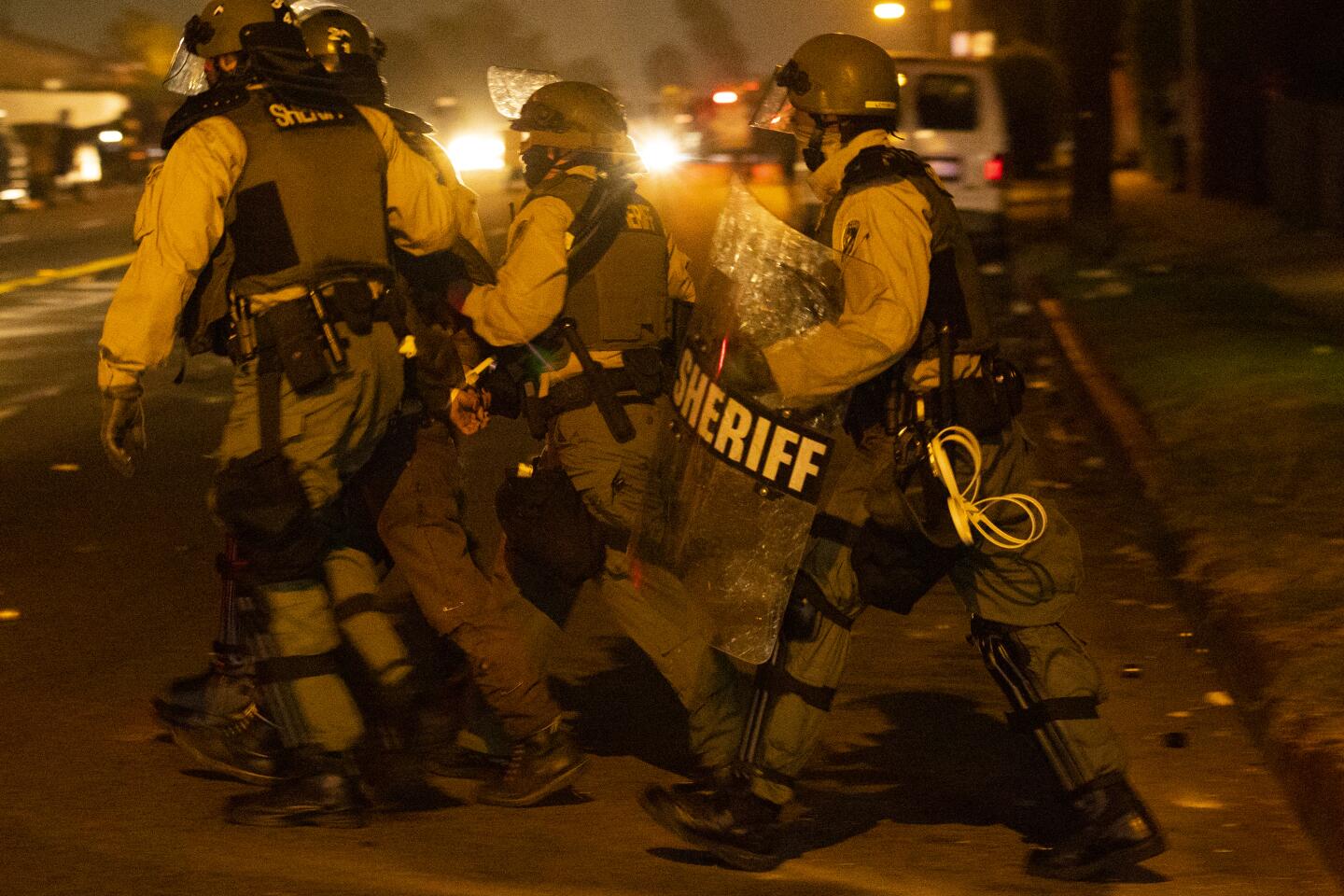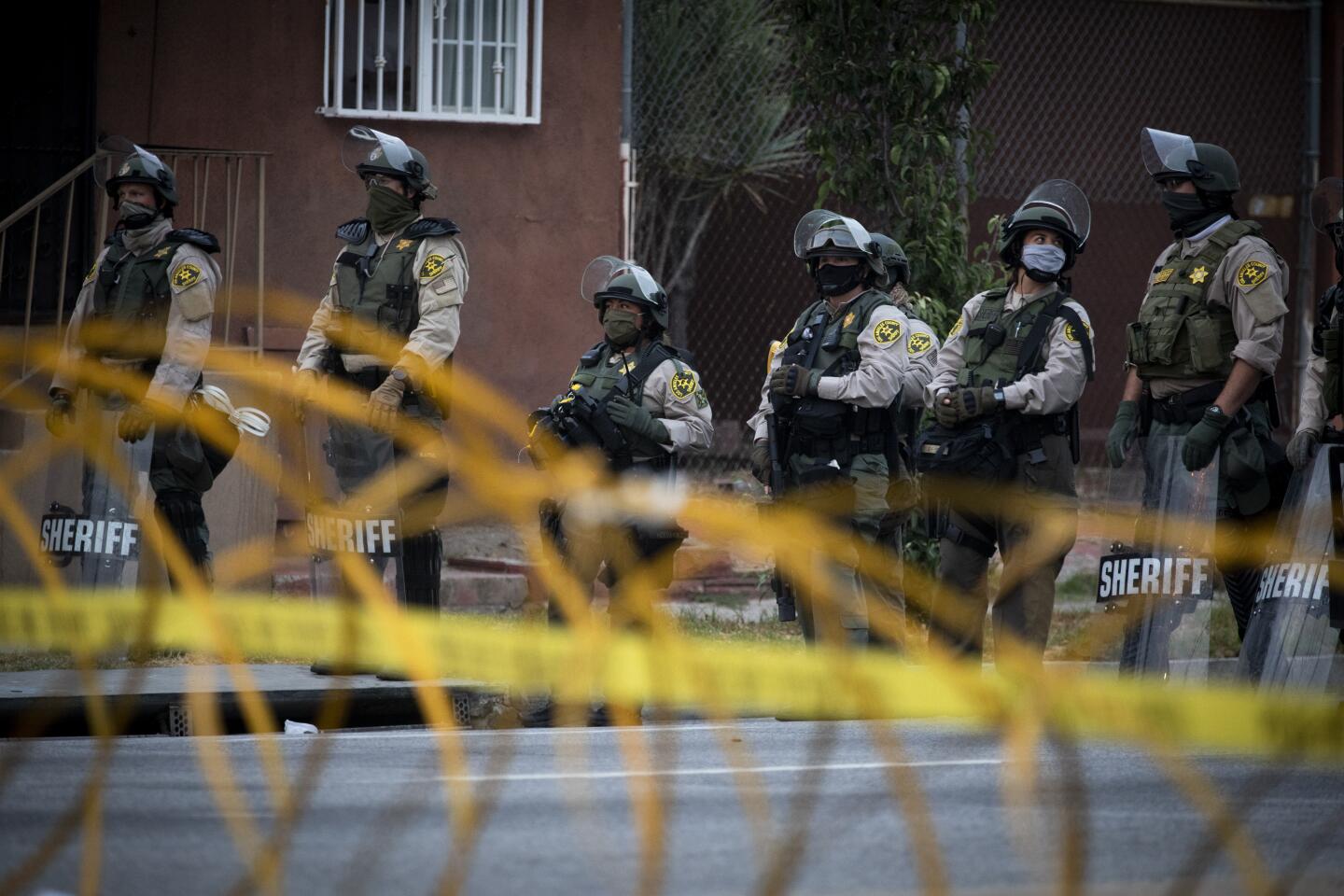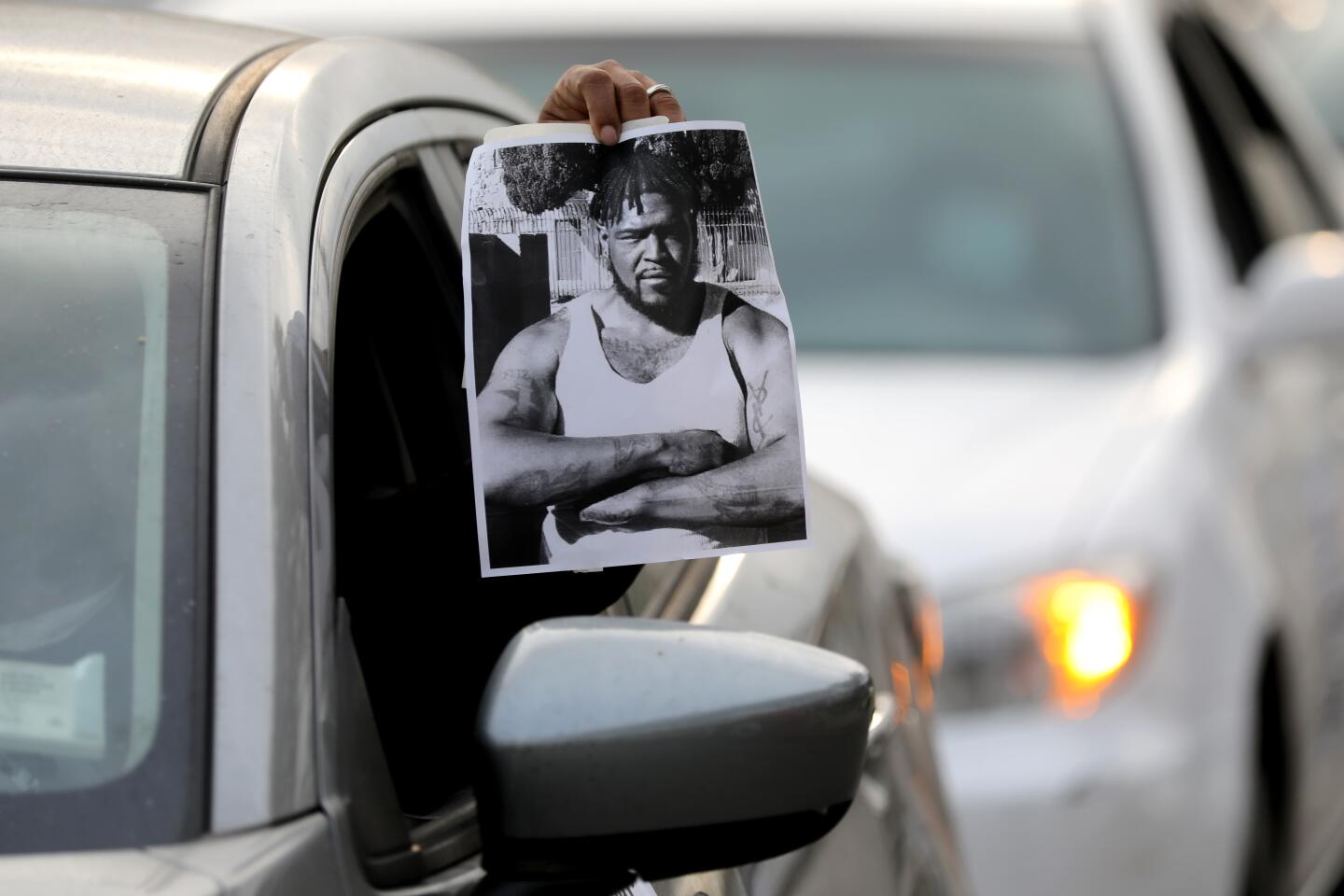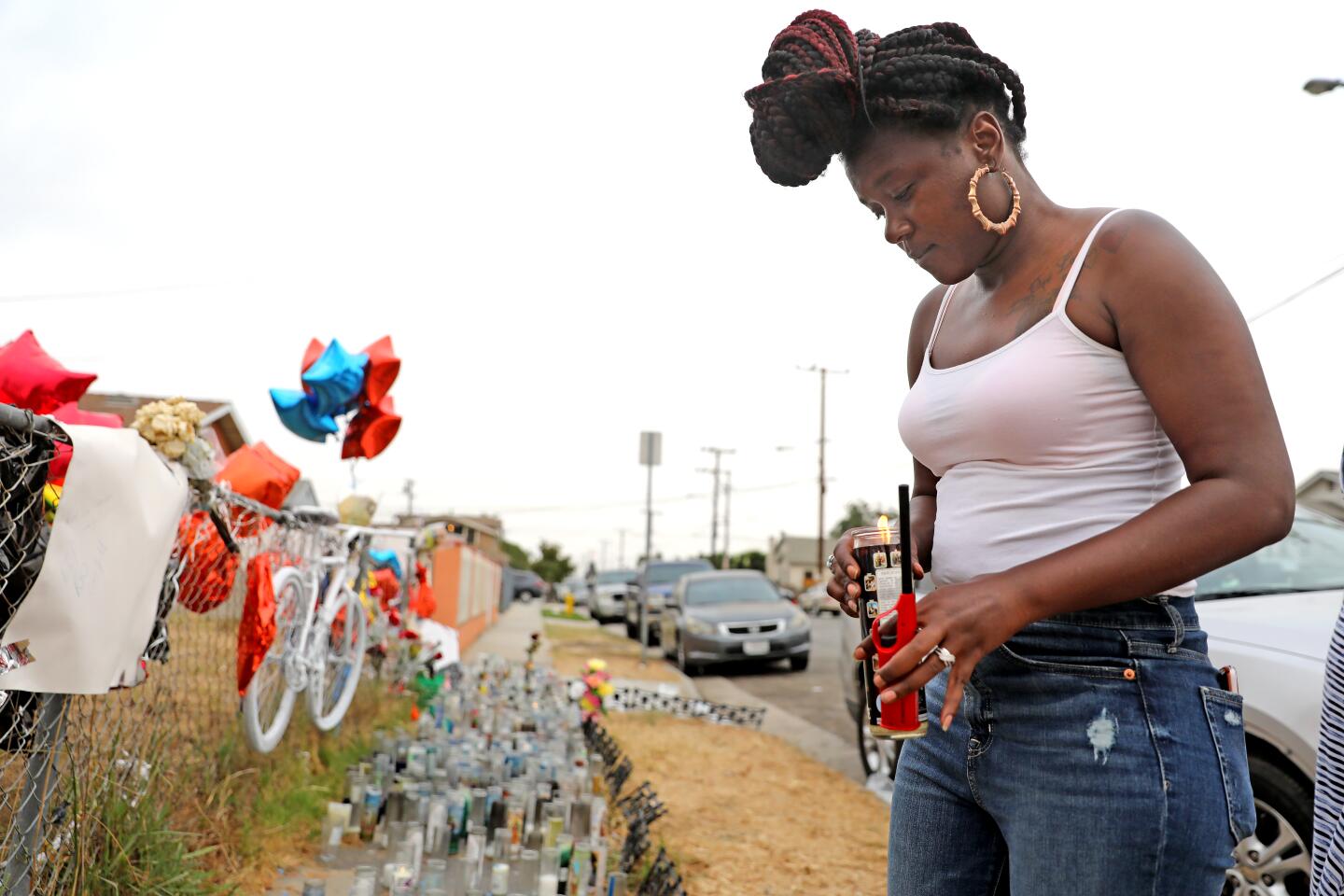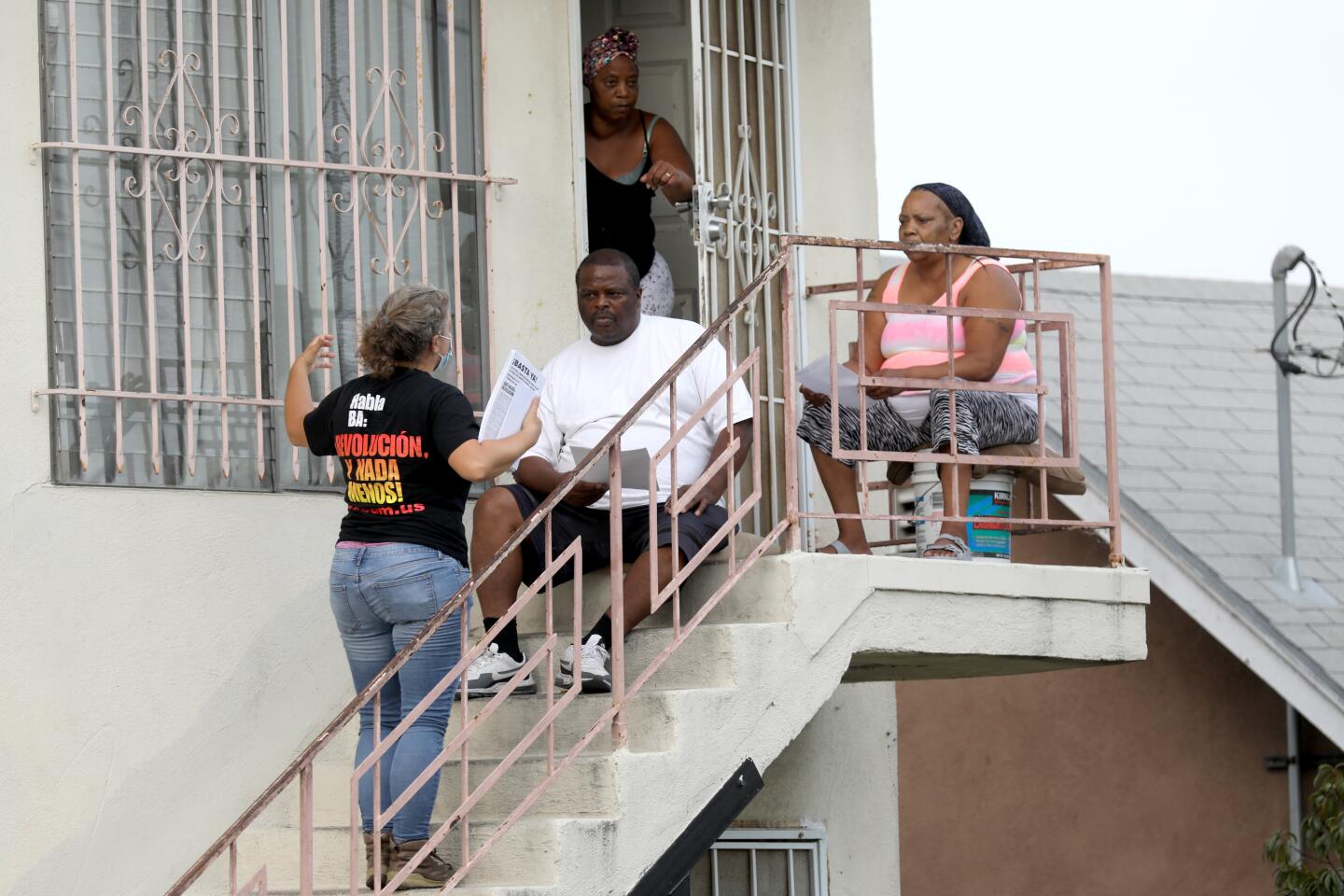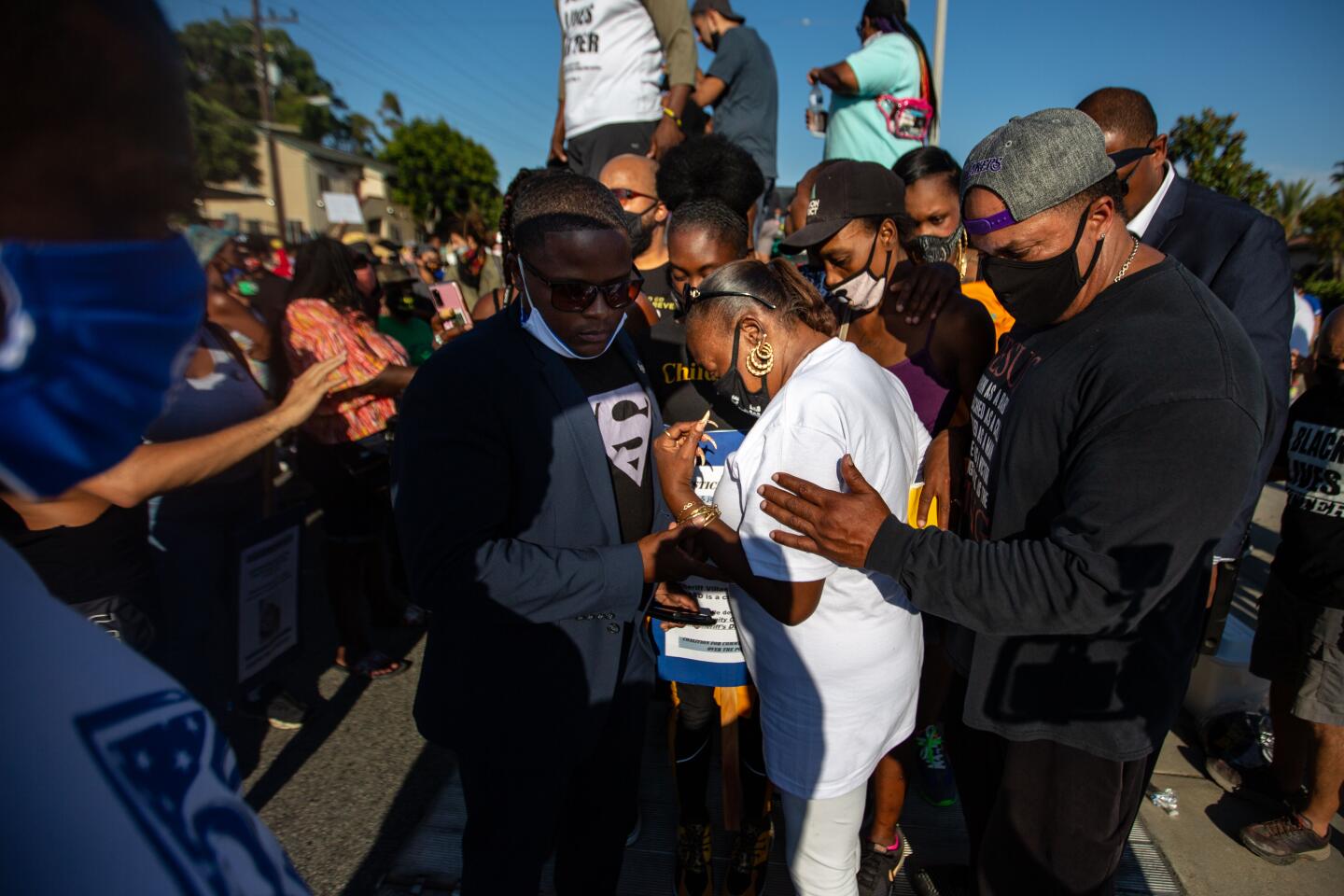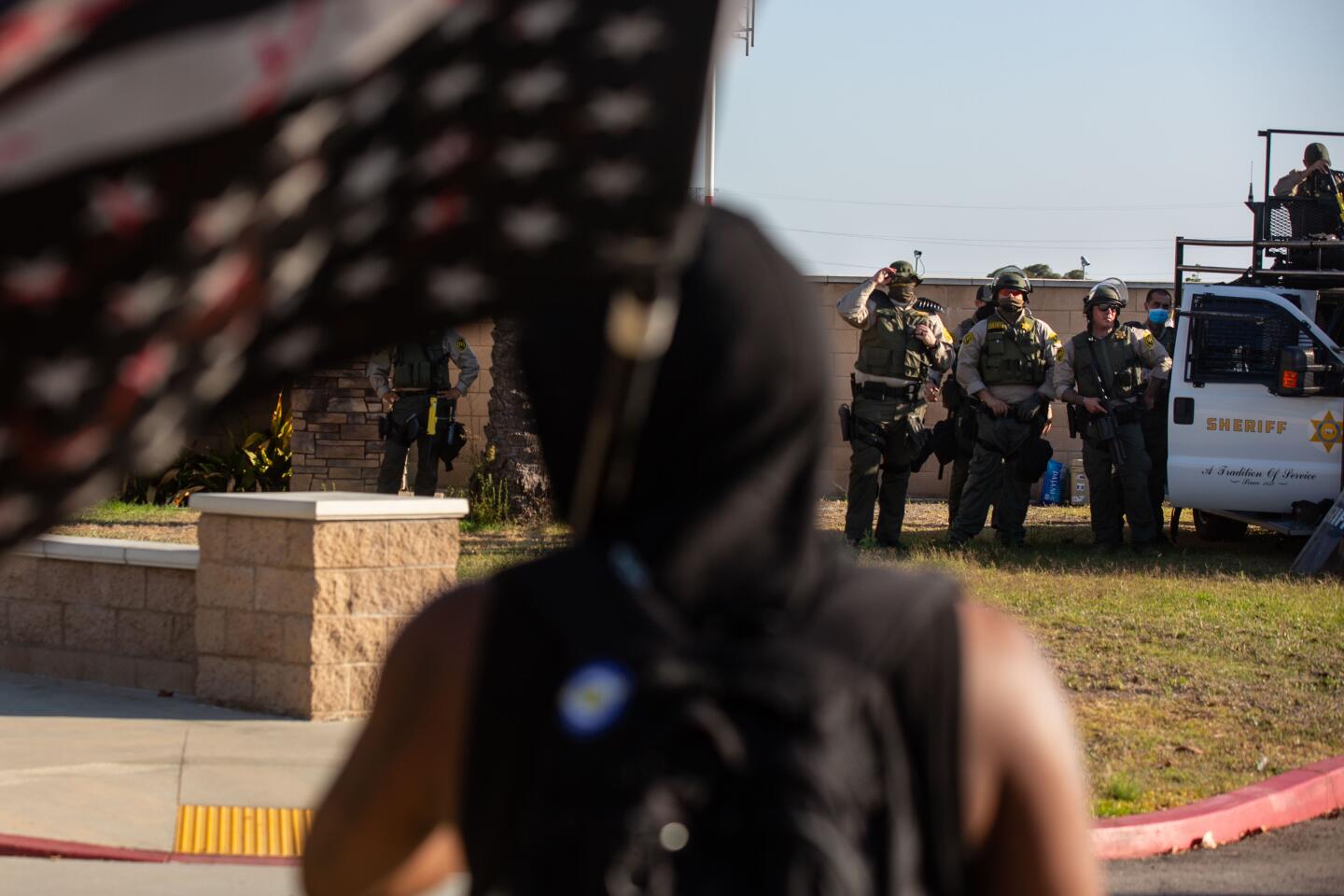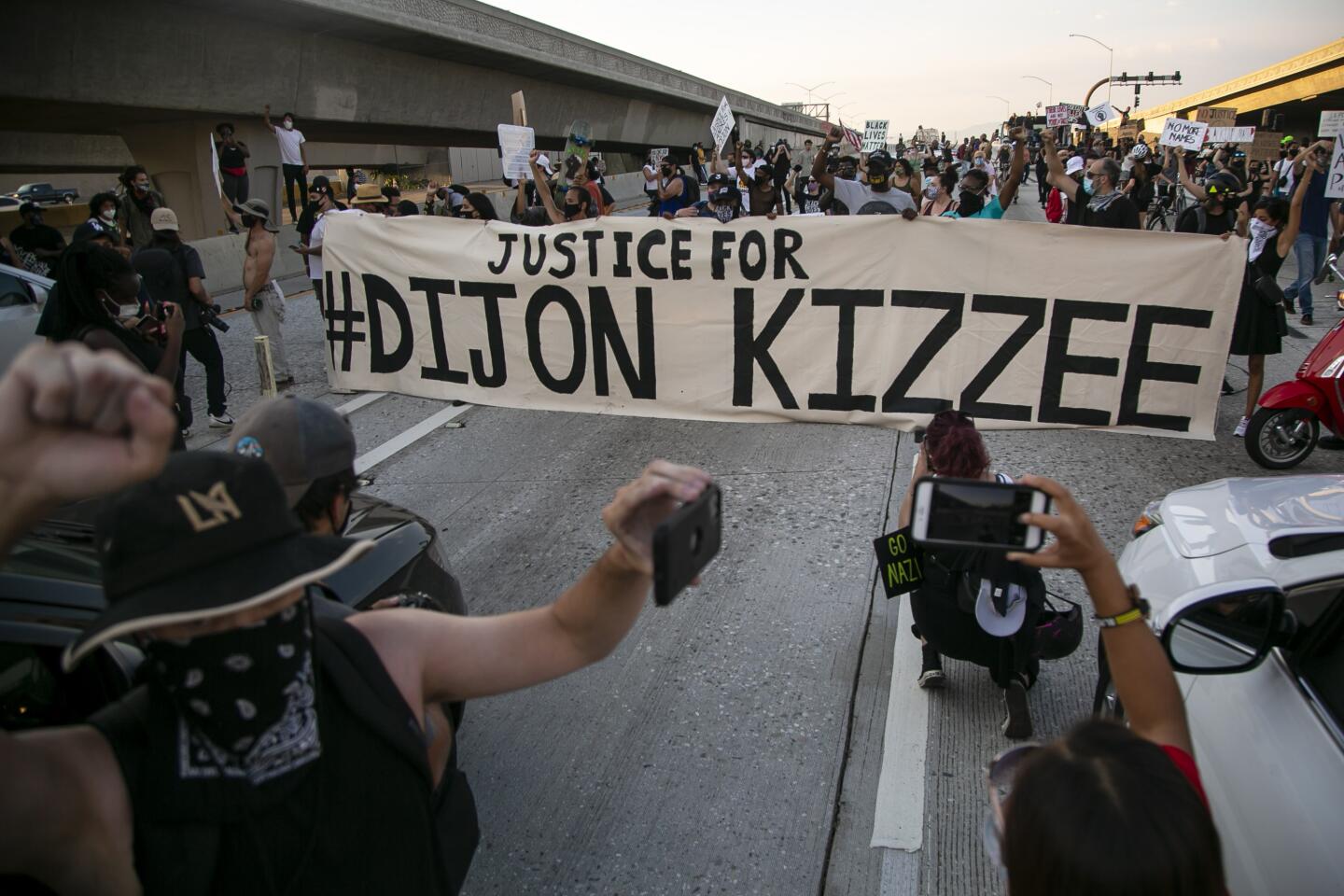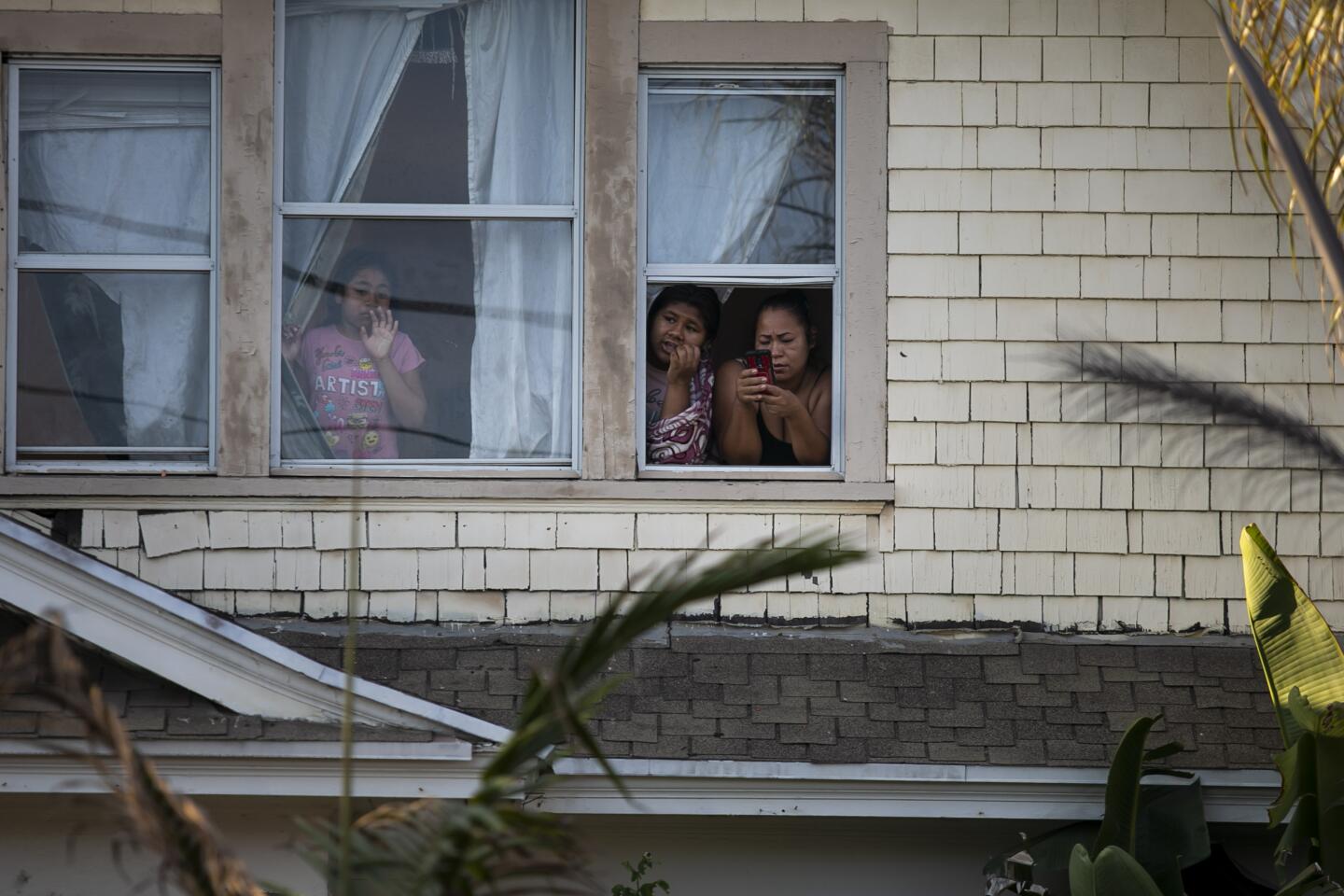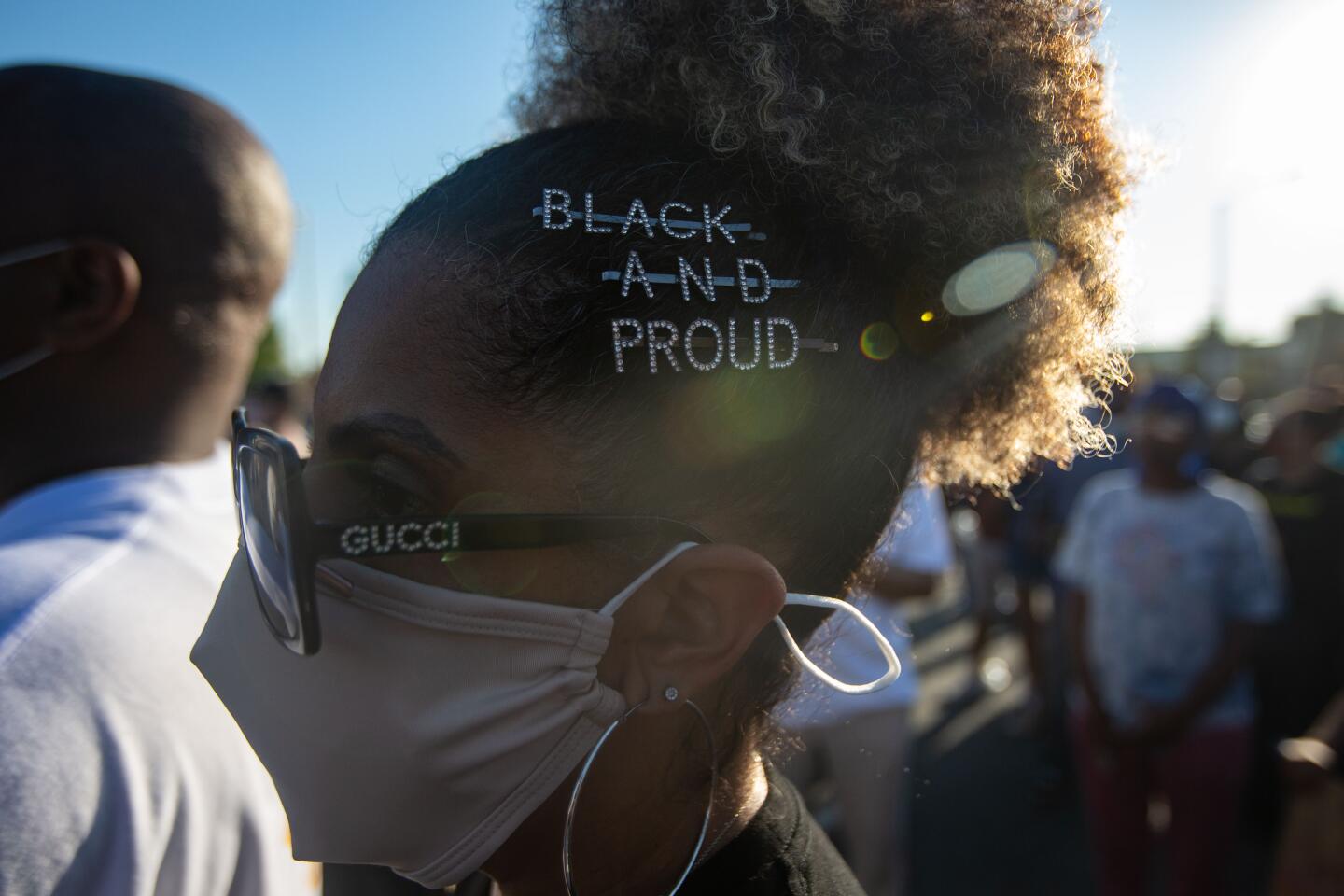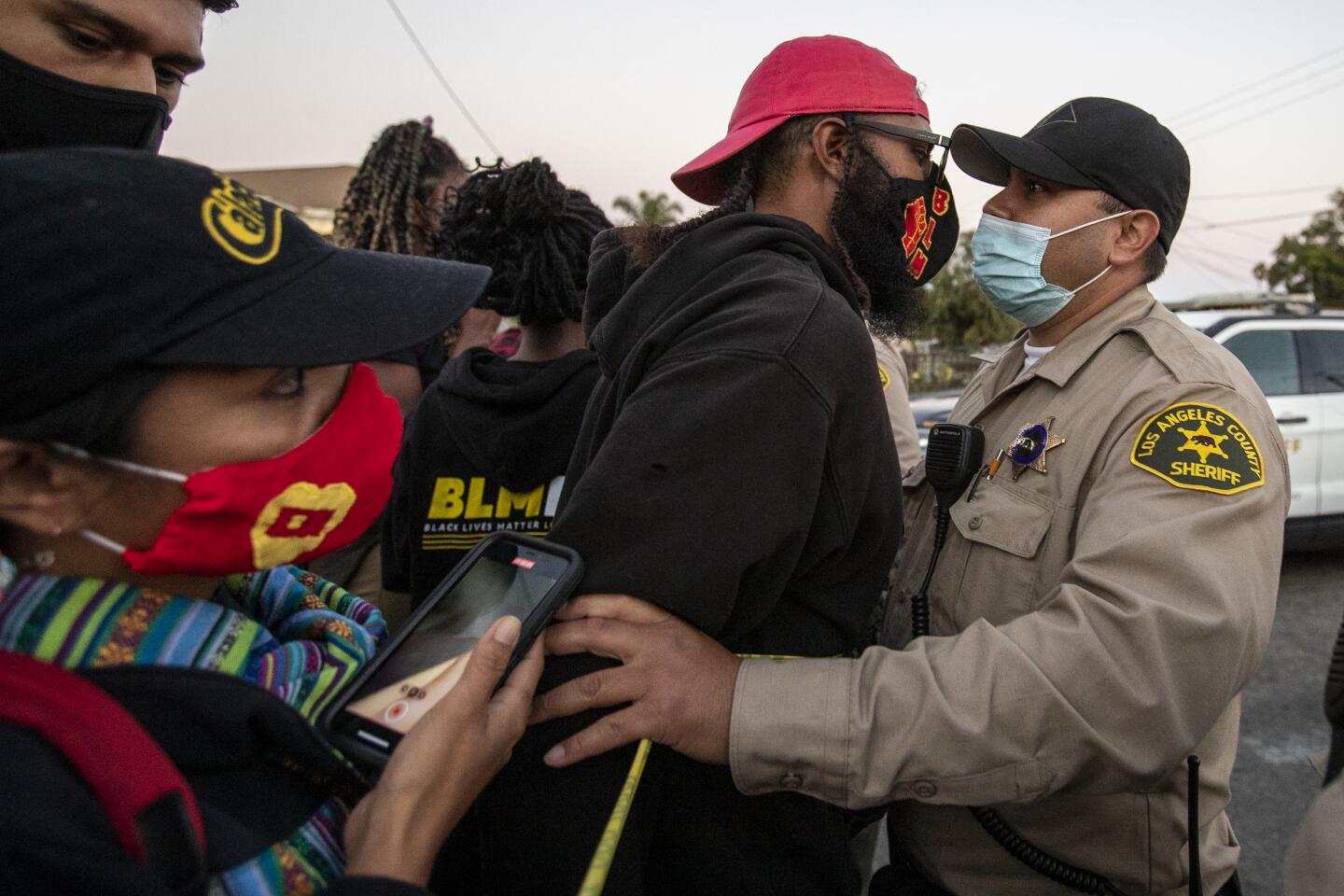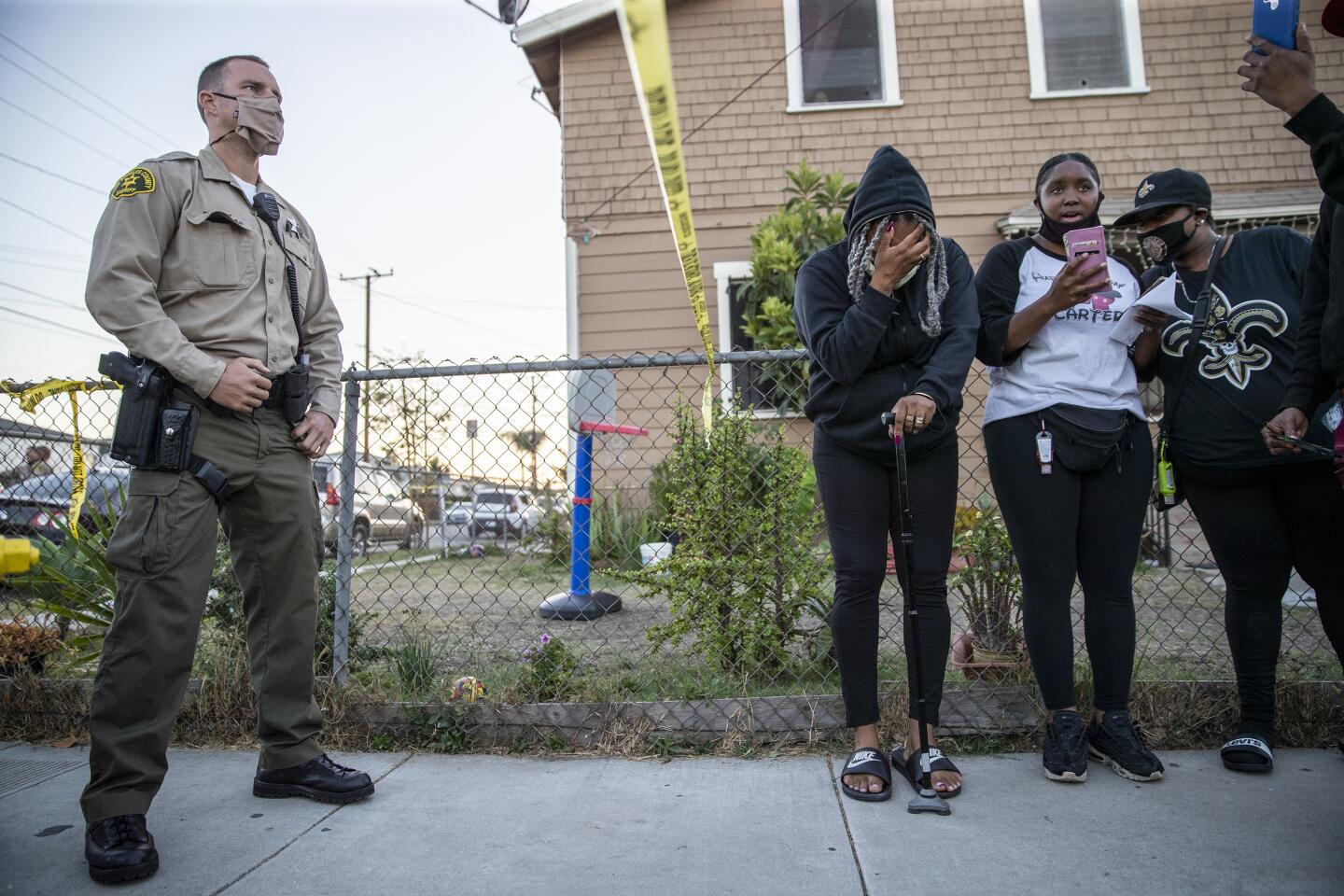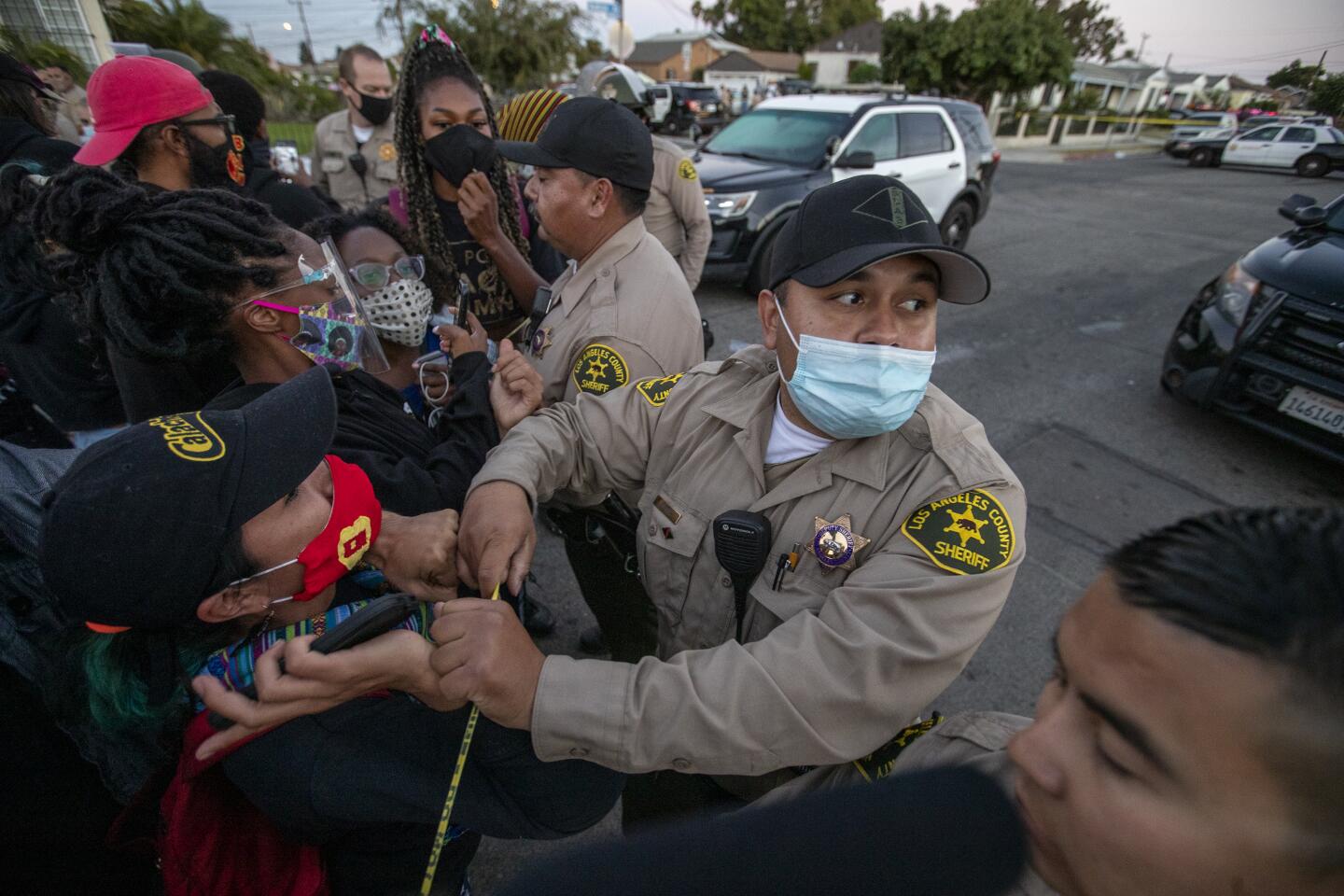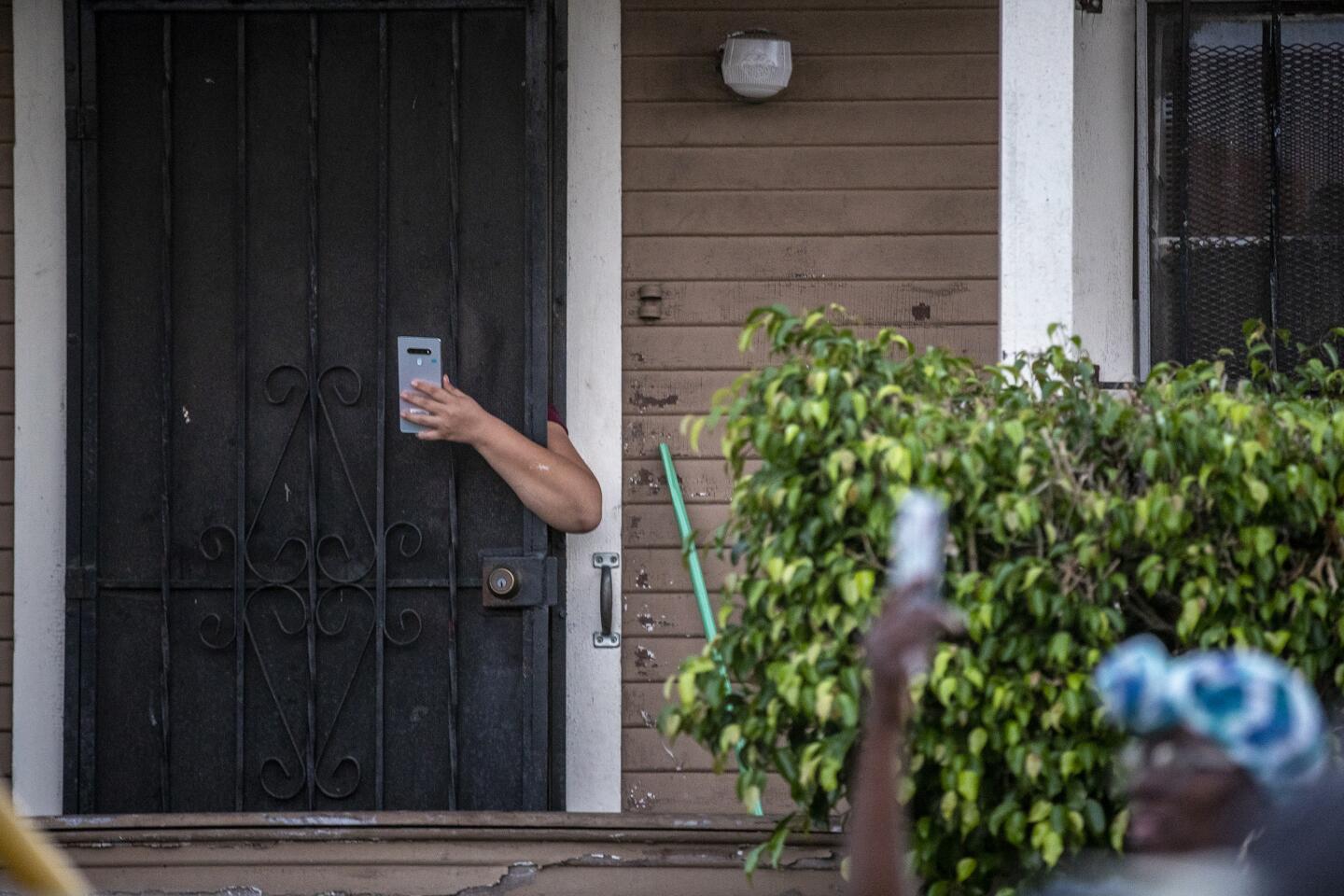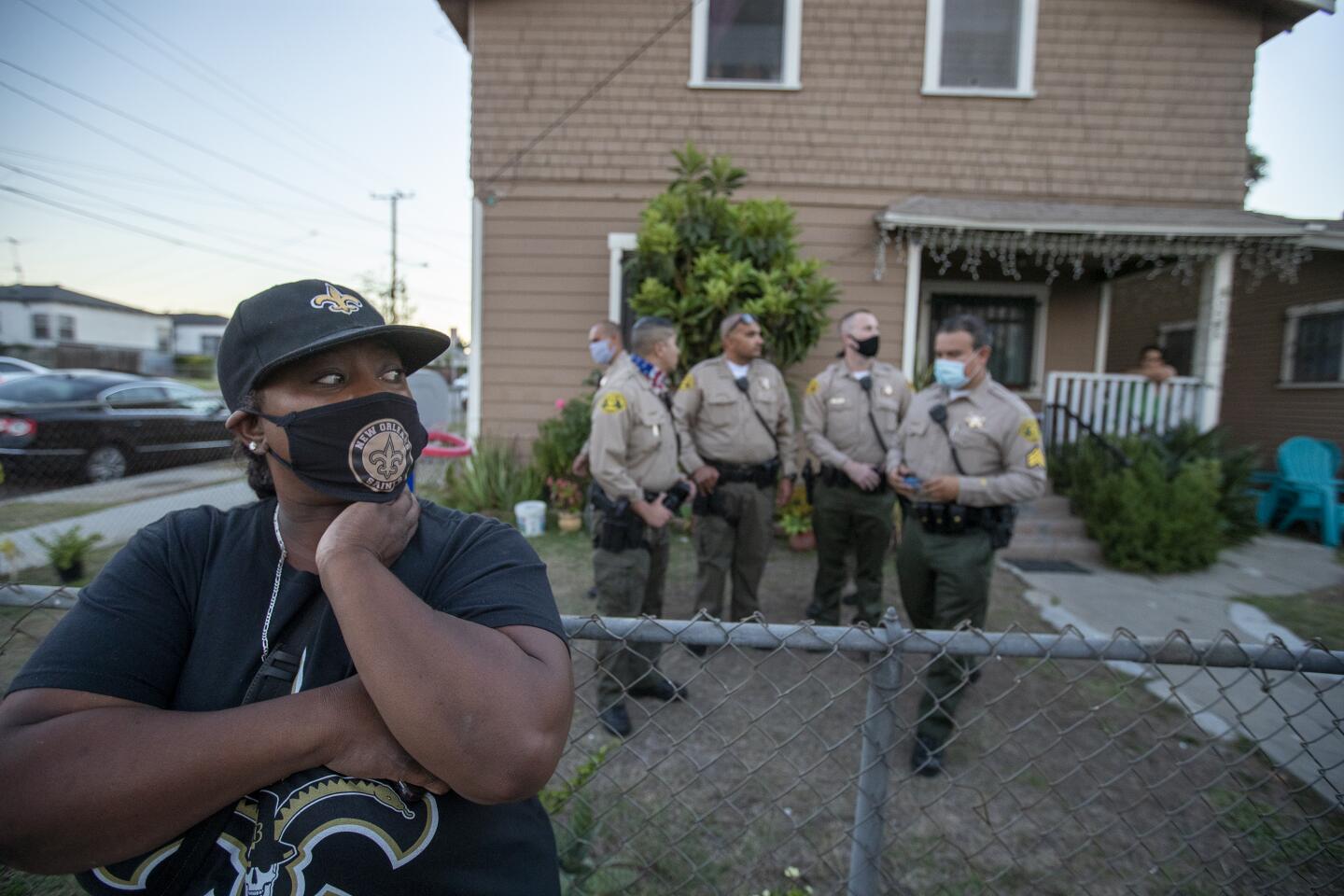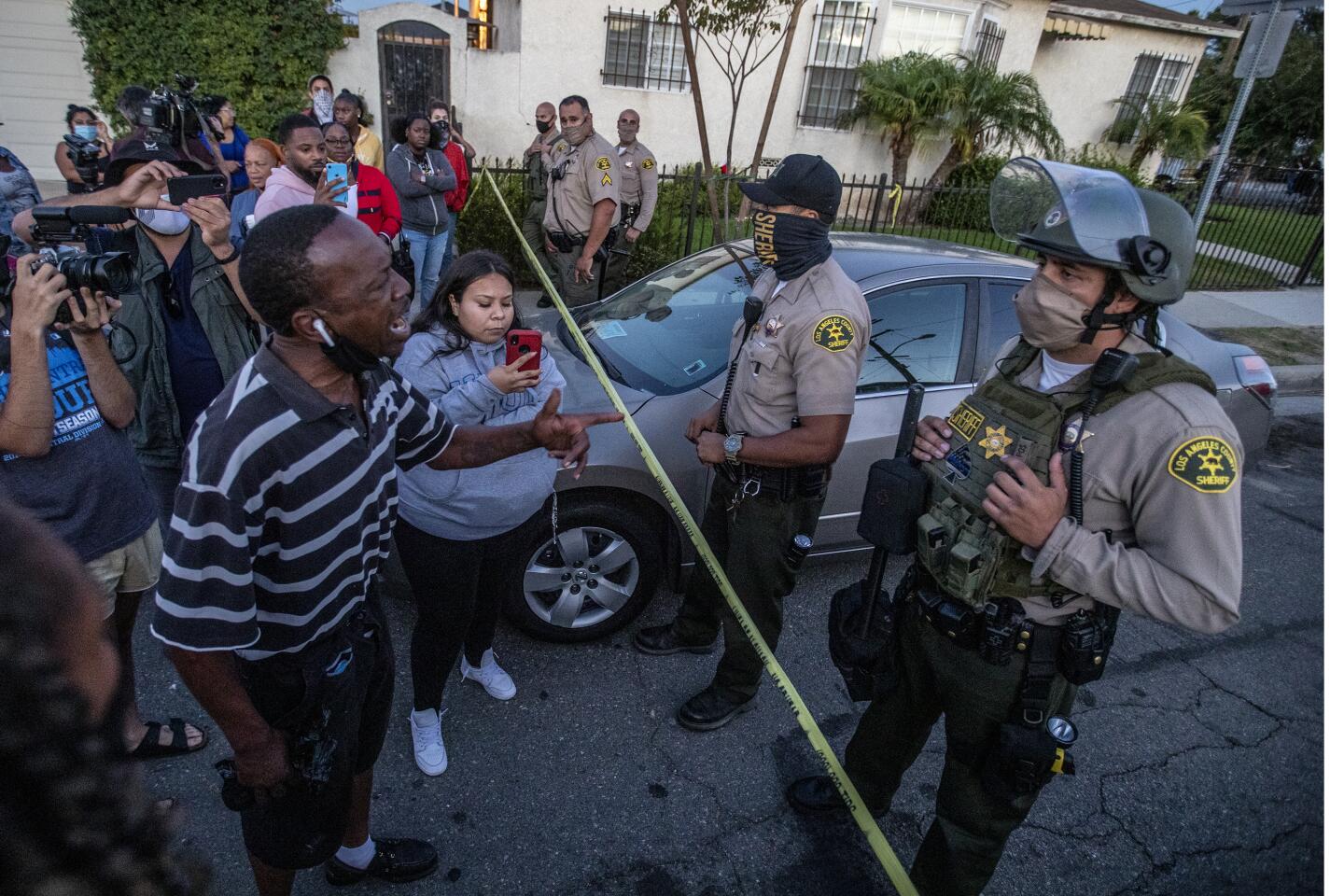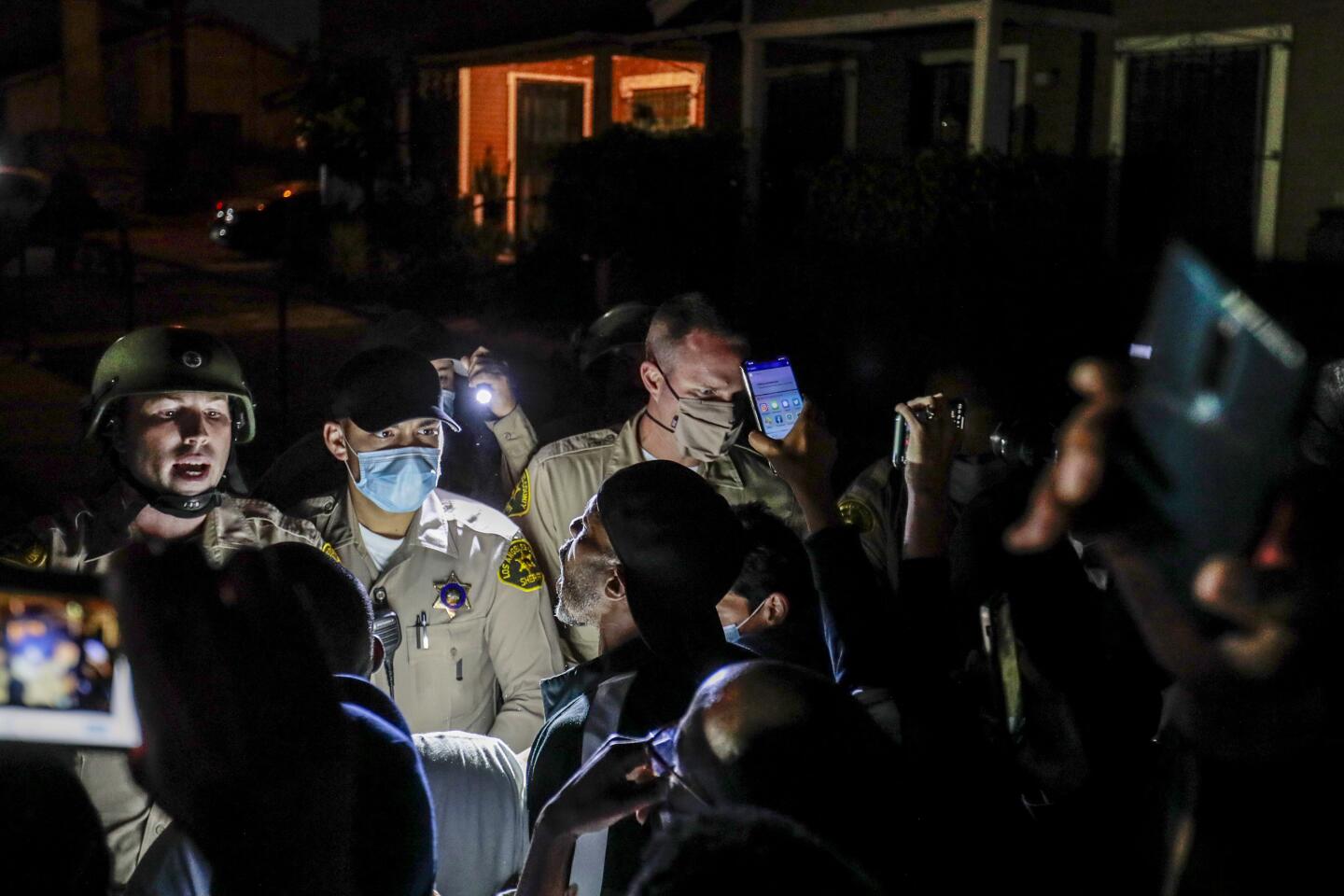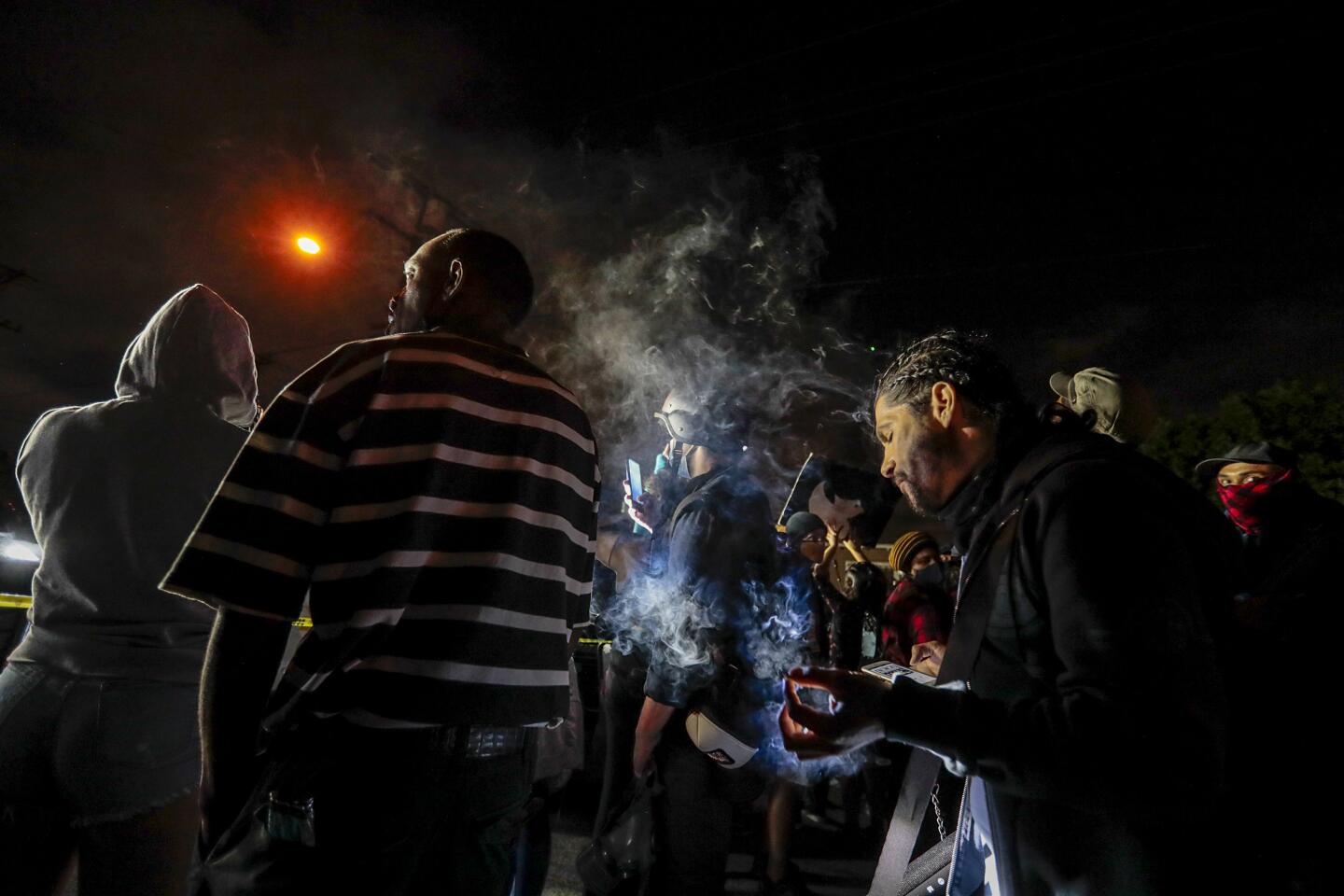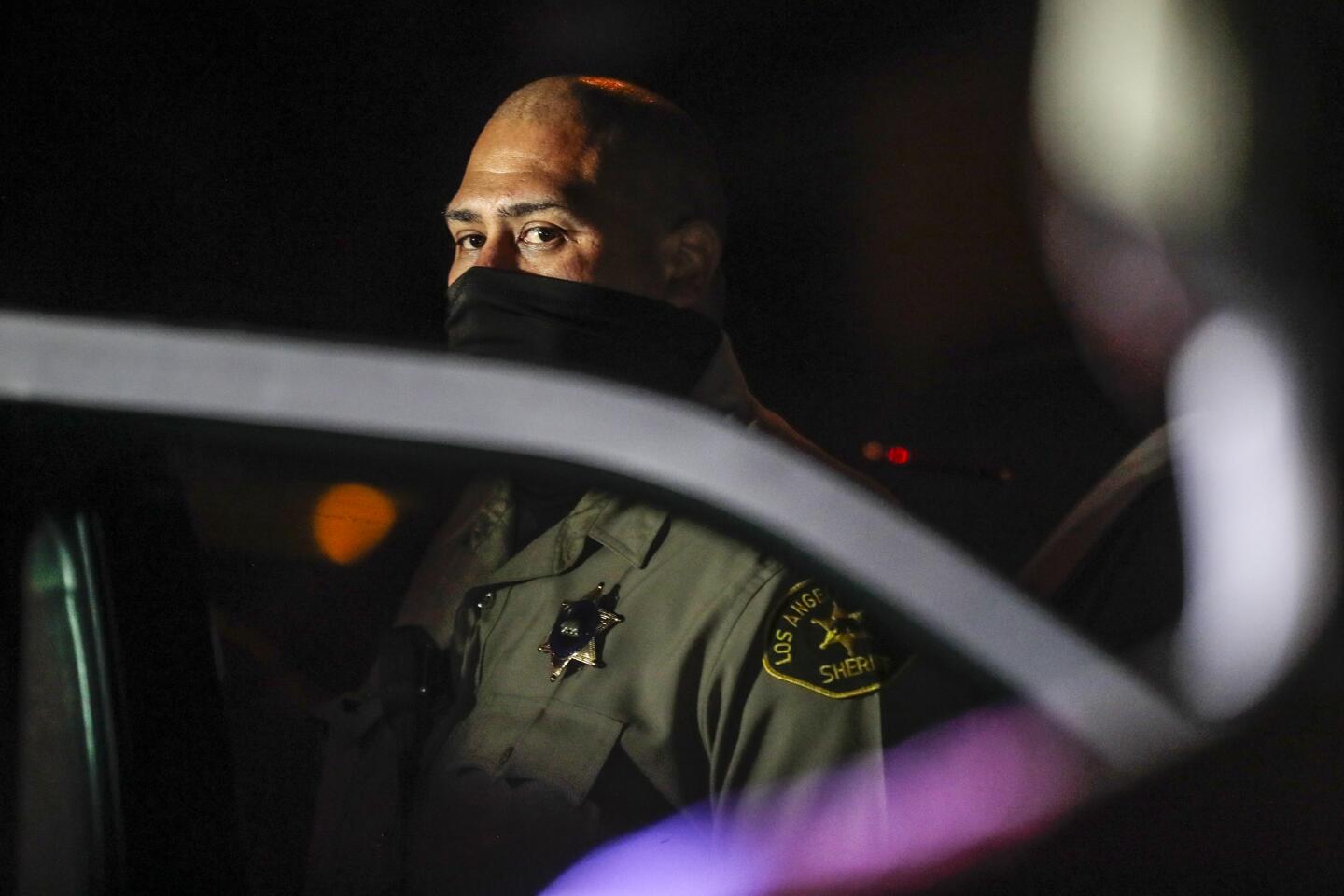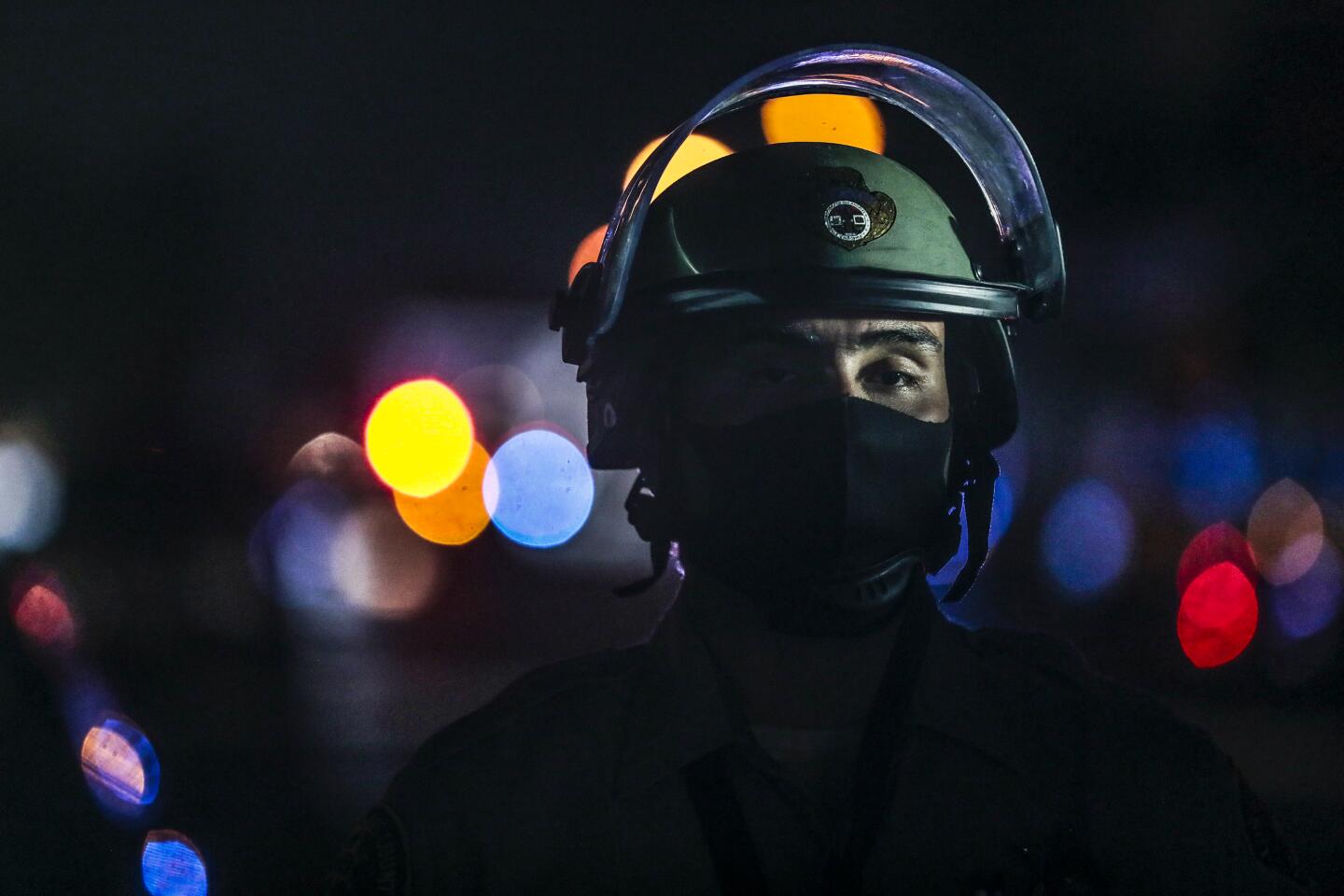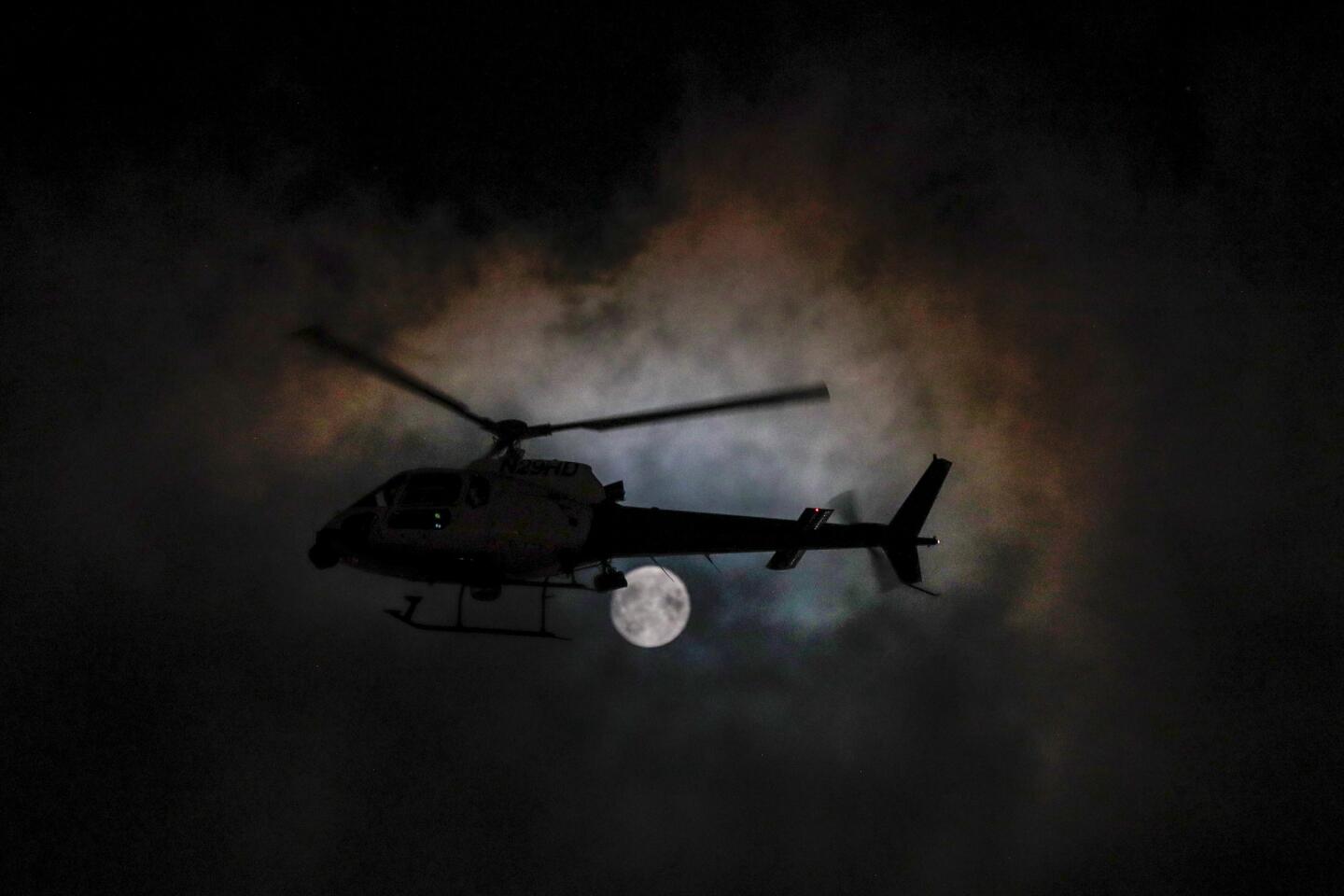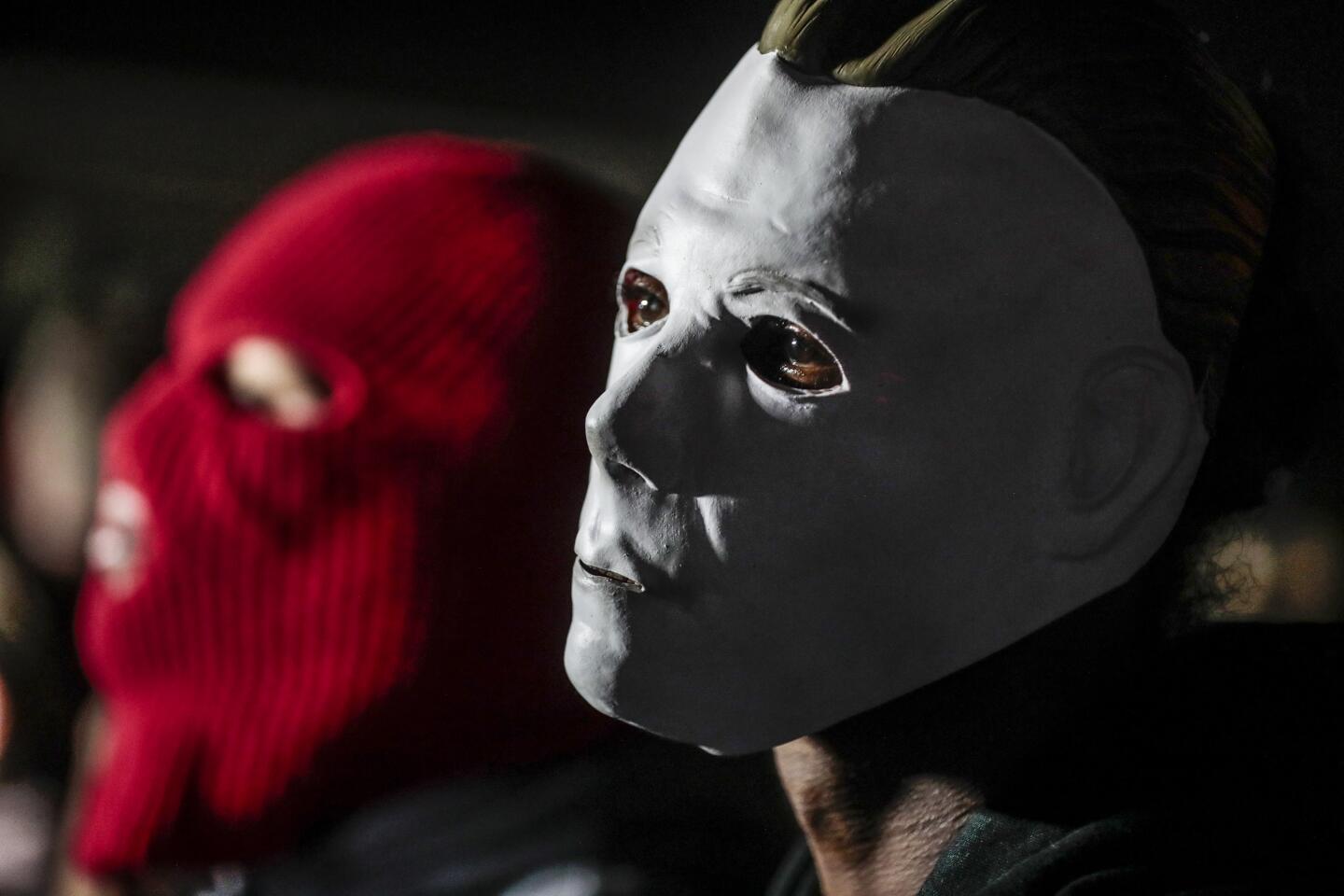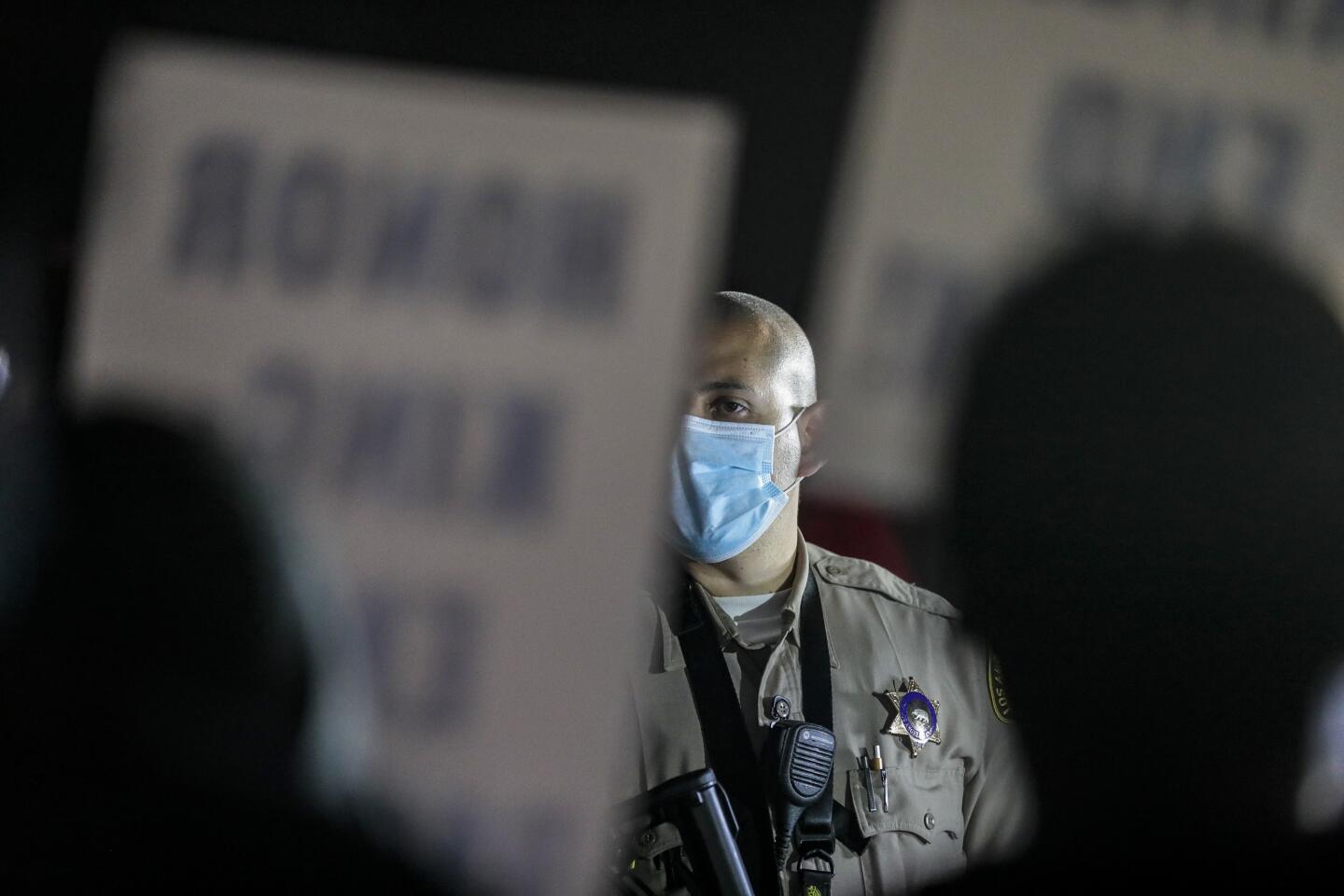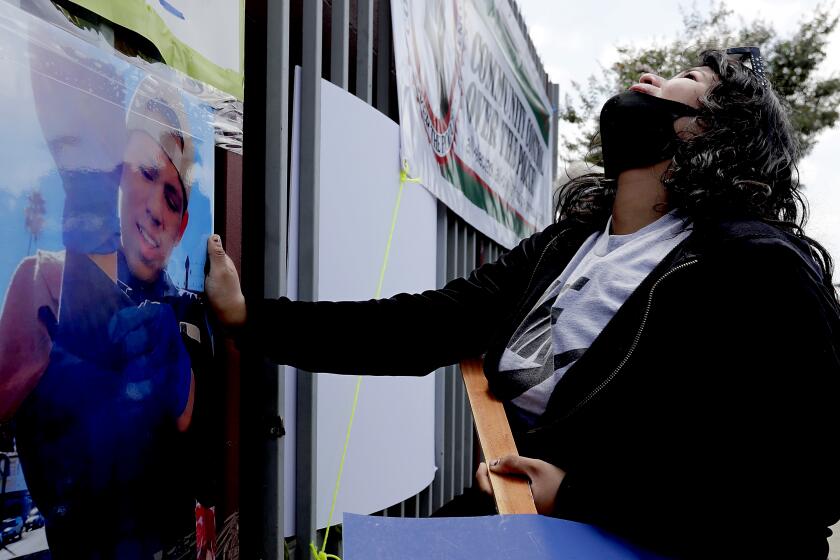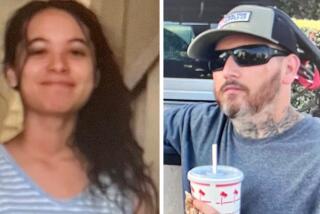Family, activists decry shooting death of Black man by L.A. County sheriff’s deputies
Family members and activists on Tuesday demanded that the Los Angeles County Sheriff’s Department release the names of the deputies who shot and killed a Black man in the South Los Angeles neighborhood of Westmont the day before.
Monday’s shooting death of Dijon Kizzee, 29, has elicited fresh waves of outcry and outrage, and renewed calls for law enforcement transparency and that those involved be arrested and prosecuted.
“The deputies essentially executed a man riding his bicycle,” Najee Ali, a community activist, said Tuesday while standing beside some of Kizzee’s relatives at the scene of the shooting.
“They’ll say he had a gun, but what they won’t say was that he was not armed with the gun. He did not point the gun. ... There was no reason for deputies to shoot a running man.”
Behind Ali, several balloons were tied to memorial candles on the sidewalk, marking the spot where Kizzee died.
L.A. County sheriff’s deputies fatally shot a man Monday afternoon in the Westmont neighborhood of South Los Angeles, the department said.
The shooting occurred at 3:16 p.m. in the 1200 block of West 109th Place, according to the Sheriff’s Department.
Lt. Brandon Dean said Monday evening that two deputies from the South Los Angeles station were driving on Budlong Avenue when they spotted a man riding his bicycle in violation of vehicle codes — though Dean said he didn’t know what specific codes the man allegedly broke.
Deputies attempted to contact the man, but he dropped the bicycle and ran north on Budlong for one block with deputies in pursuit, Dean said. Deputies again tried to make contact with the man in the 1200 block of West 109th Place, and Dean said he punched one of them in the face.
The man then dropped a bundle of clothing he had been carrying, Dean said. The deputies spotted a black handgun in the bundle, and both opened fire, killing the man. A day after Dean briefed reporters, the Sheriff’s Department said in a statement the man had “made a motion toward the firearm” before deputies shot him.
Dean said he did not know how many times the man — later identified by coroner’s officials as Kizzee — was shot. A handgun was recovered at the scene, he said.
Ali said that Kizzee was shot in the head and that his family would conduct an independent autopsy.
Family members said Kizzee, an unemployed plumber who lived in Lancaster, had come to the area to visit friends.
Fletcher Fair, Kizzee’s aunt, said she was tired of seeing police violence against Black people.
“Right now, I’m sad and I’m mad at the same time,” she said. “Why us? ... We are tired. We are absolutely tired.”
Anthony Johnson, Kizzee’s uncle, said he and residents of the neighborhood where his nephew was shot spent time Tuesday morning cleaning his blood off the sidewalk.
He pointed to plastic gloves lying on the pavement, which he said had been left there by law enforcement.
“They shot him. They killed him. The least they could have done was clean up after themselves,” he said.
He described Kizzee as someone who was “the life of the party” and said he last saw his nephew about a week ago in Palmdale.
“We kind of had a head bump, and I said, ‘I love you,’ and he said, ‘I love you back,’ and I told him to stay safe,” he said.
Kizzee did not have children and is survived by his younger brother, who just graduated from high school, his family said.
Alida Trejo, 52, was sitting by her sewing machine Monday when she saw a man being chased by a sheriff’s deputy through her window.
Curious, she walked outside to see what was happening and managed to catch the deputy struggling to arrest the man. Neighbors were yelling at him not to resist and telling the deputy not to shoot.
“They say the man punched the deputy, but I never saw that happen,” Trejo said.
Then, gunfire erupted.
“I heard maybe eight to 11 gunshots,” Trejo recalled Tuesday. “Even when the man was [on] the ground, they shot him again.”
Liz Trejo, 16, was in her room taking a college prep course when she heard gunshots and her mother screaming.
She ran outside and saw her mom yelling and crying hysterically: “They killed him. They killed him.”
Trejo and her daughter said the shooting was the second on their block in recent months. They said a young Latino man was shot by deputies west of Budlong Avenue on 109th Place following the death of George Floyd — a 46-year-old Black man who died in May after a white Minneapolis police officer pinned his neck to the ground with his knee.
Gerardo De La Torre, 18, also recalled the recent shooting: A Latino man had come down his street, gun in hand, and was standing in front of his family’s home when sheriff’s deputies shot him, De La Torre said. The Sheriff’s Department said at the time that the man had pointed the handgun at officers.
At noon Tuesday, Bobbie Lee, 51, sat with her 15-year-old daughter and 1-year-old nephew on her front porch and watched a few dozen people congregating across the street, where Kizzee had been shot.
“I think we’re gonna need some damn counseling,” she said, referring to the neighbors who had seen Kizzee’s body — including her daughter, Tabatha Ingram.
Tabatha was inside the house Monday evening when she was startled by gunshots. She walked outside and saw Kizzee tumble to the ground. Afterward, neighbors began yelling at deputies.
“‘You don’t have to shoot him that many times! You could have Tased him,’” she recalled them saying.
Her father, Timothy Ingram, said authorities handcuffed Kizzee minutes after he was shot. He said officials refused to cover his body despite neighbors pleading with them to do so.
Authorities, he said, didn’t take Kizzee’s body away until about midnight or 1 a.m. — more than nine hours after he was shot.
“I stayed here until they moved the body,” said Ingram, 52. “I was not going to leave. ... I felt it was my civic duty to watch over that man.”
Latiera Irby, 29, had stopped by her mother’s house Monday to get her hair done. She said that Kizzee came up to her car — on the street where he was shot — as he was running from deputies.
“He said, ‘They’re coming to get me; they’re coming to get me,’ ” she said, adding that Kizzee had offered her money to drive him away.
“I didn’t know who he was running from, so I told him no,” she said.
Shortly after, she saw him get into a scuffle with a sheriff’s deputy. At one point, she said, the deputy backed away, then shot Kizzee. She said the same deputy and another fired at Kizzee after he had fallen to the ground.
“He had nothing in his hands,” she said of the slain man.
Irby said she did not sleep Monday night, unable to get the shooting out of her head.
“All I could see is that man on the ground and [them] still shooting him,” she said.
The shooting also has prompted renewed calls for L.A. County sheriff’s deputies to wear body cameras.
Standing in front of a Black Lives Matter mural in Jefferson Park, Earl Ofari Hutchinson, president of the Los Angeles Urban Policy Roundtable, asked why the department had yet to equip its deputies with such equipment.
“All we have to go on this latest shooting is one thing: their version of it,” he said Tuesday. “We’re in the dark. We don’t know anything.”
After years of discussions, Sheriff’s Department still hasn’t outfitted deputies with body cameras.
Hutchinson said he and other civil rights leaders planned to attend Tuesday’s meeting of the Los Angeles County Board of Supervisors to request funding to pay for the equipment.
“It must be now, and it must be mandatory,” he said.
The department, he added, has no excuse for the lack of body cameras because officials have had years to figure out what equipment to use and a funding source.
The Los Angeles Police Department, for instance, began deploying body cameras in 2015.
“Why does the LAPD have body cameras and not the Sheriff’s Department?” Hutchinson said. “When there’s a shooting, law enforcement says one thing, and if we have no way to really verify, then what do we have? We have a lot of questions. You have a lot of controversy, and you have something else too — a community that’s outraged.”
The Sheriff’s Department is scheduled to start rolling out body-worn cameras in October.
The shooting of Kizzee comes less than three months after another controversial fatal shooting by sheriff’s deputies. The death of 18-year-old Andres Guardado in Gardena sparked weeks of demonstrations.
Protesters took to the streets again Monday, initially gathering in Westmont where Kizzee was shot. There were chants of “Say his name,” “No justice, no peace” and “Black lives matter.” Some said they didn’t think the shooting was justified.
Later in the night, more than 100 people marched to the sheriff’s station on Imperial Highway, where demonstrations continued.
Times staff writer Alene Tchekmedyian contributed to this report.
More to Read
Sign up for Essential California
The most important California stories and recommendations in your inbox every morning.
You may occasionally receive promotional content from the Los Angeles Times.
